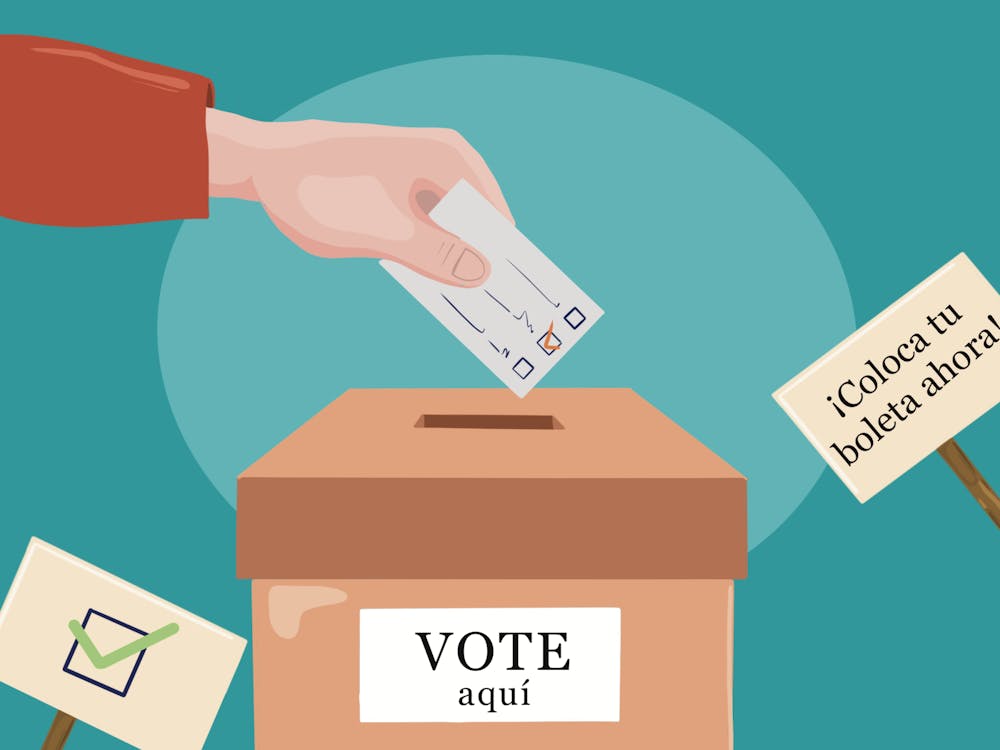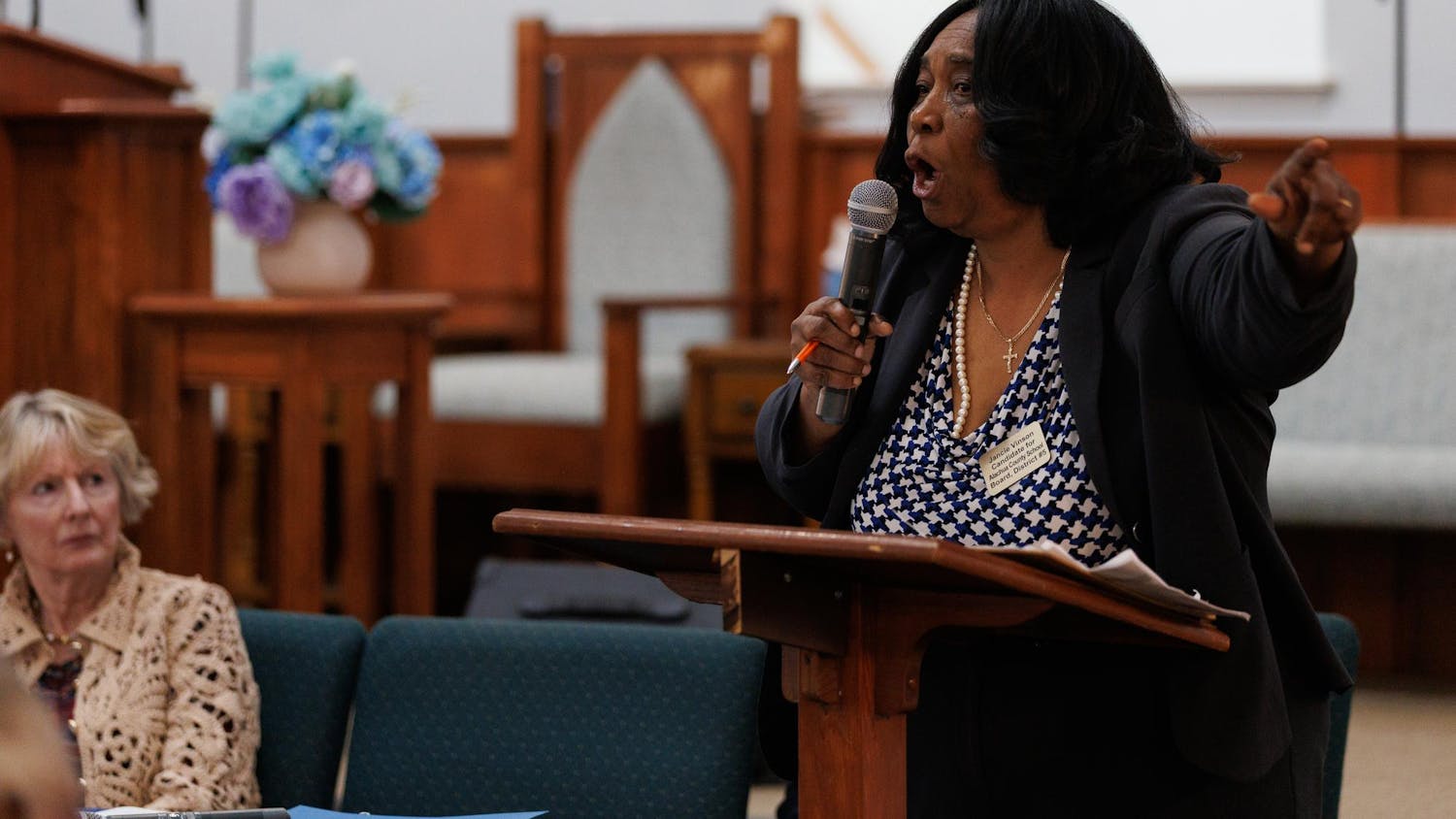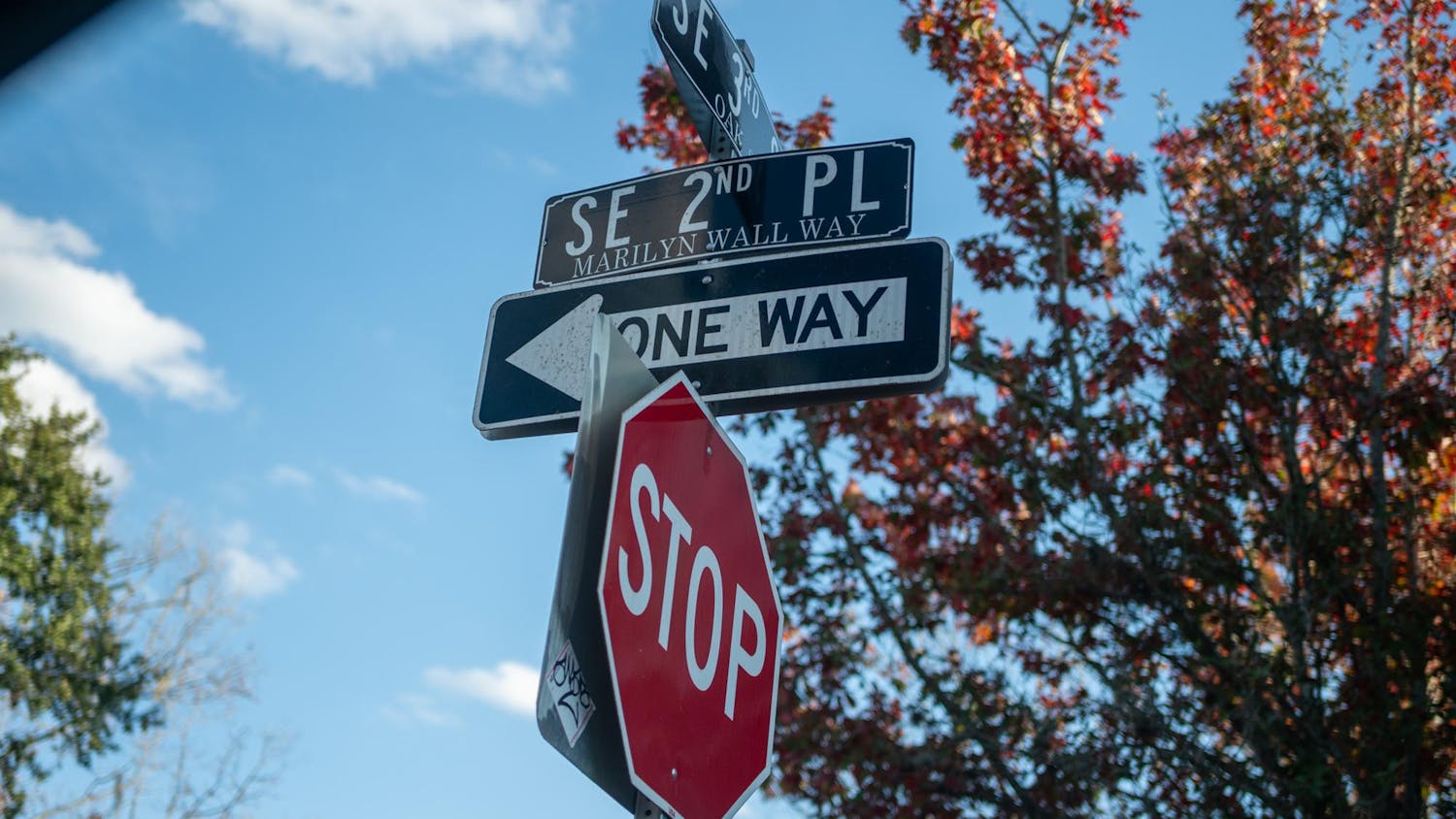For Miguel Sanchez, the Hispanic community cannot be confined to one candidate or party.
“When people talk about the Hispanic vote, you cannot generalize it,” the 19-year-old UF computer engineering sophomore said.
Once a long-time swing state — Florida has become more red since the 2016 presidential election and Gov. Ron DeSantis took office in 2018. There are 5.2 million registered Republicans and 4.7 million registered Democrats in the state as of Aug. 22, according to the Florida Division of Elections website.
The Republican Party’s branding as the party of anti-communism and limited government has helped shift Florida's Hispanic voters toward conservatism, contributing to the red wave that has impacted the state in recent elections. In the 2022 gubernatorial election, DeSantis secured 62% of the Hispanic vote in Miami-Dade County, a former Democratic stronghold.
Yet, associating an entire demographic with the Republican Party does not paint an accurate picture of the Hispanic vote in largely blue counties like Alachua County, Sanchez said.
In Alachua County there are 12,000 active Hispanic voters. Nearly 20% are registered Republicans, 46% are registered Democrats and 34% are registered with a third party or no party at all, according to the Florida Division of Elections.
Statewide, Florida has about 2 million active Hispanic voters. Of those voters 27% are registered Republicans, 35% are registered Democrats and 37% are registered with a third-party or no party at all. Hispanic voters between the ages of 18 and 29 favored Democratic candidates in the 2022 election cycle.
It is important to note that a voter's registered political affiliation may not necessarily match the candidate they vote for.
Sanchez registered to vote Sept. 19 with the Alachua County Supervisor of Elections Office, which was tabling in the Plaza of the Americas. He has been following politics since middle school when former president Donald Trump announced his presidential campaign in 2015.
While Sanchez used to back Trump due to his straightforwardness and focus on business, his support ended after Trump's allegations of election fraud in 2020.
Now, Sanchez’s views mostly align with the Democratic Party’s agenda, with issues like health care accessibility motivating him to be politically involved. He encourages the Hispanic community to participate in elections and embrace the democratic process.
“I feel like it's your responsibility to vote to be represented,” he said. “You’re given an opportunity. It’s not fair if you don’t vote.”
Sanchez’s mom is from Colombia, and his dad is from the Dominican Republic. In Colombia, ongoing political corruption discourages people from voting, he said of his mom’s experience.
The country’s nine-member National Electoral Council frequently faces controversy for its inability to enforce election laws. Colombia also has a corruptions perception index of 39 out of 100, according to Transparency International, which can make prospective voters hesitant to vote when they move to the U.S.
Even though Florida law preserves election confidentiality, Aaron Klein, the director of communications and outreach for the Alachua County Supervisor of Elections Office, said misinformation about voting privacy is an issue. Newly naturalized immigrants can be particularly hesitant to vote, he said.
“You will certainly get people who may be skeptical, who may even be afraid of registering,” he said. “Folks may be coming from places where voting isn't simple.”
It's understandable for some Hispanic voters to be suspicious, Klein said, especially Latino immigrants from countries like Cuba or Venezuela, who may have experienced rigged or corrupt elections in the past. But he assured Alachua County residents that elections are safe, accessible and fair.
However, there are also local Hispanic residents who are comparatively enthusiastic about the U.S. election system, he said. Some naturalized immigrants choose to become election workers to learn about the election process and be more politically involved, Klein said.
“Your vote — it's really important because it represents your contract with the leaders [and] with the community,” Klein said. “It represents that you are invested in the future of your community.”
The number of eligible Hispanic voters in Alachua County who voted in the 2022 general election dropped by 15 percentage points from 2018. In the 2016 general election, 70% of eligible Hispanic Alachua County voters casted a ballot in the election. In the 2022 general election that percent dropped to about 40%.
The county has made multiple efforts to make the voting process more accessible to non-English speakers, Klein said. The elections office website is translatable, and there is a Spanish voter registration form and hotline. Voters are also allowed to bring translators with them for in-person voting.
The right to vote is the only way for the Hispanic community to make its voice heard, Jesus Martinez, a Gainesville muralist and co-founder of the mural production company Visionary FAM, said.
Although he doesn’t affiliate with either political party, Martinez said among the Hispanic community he notices a preference for the Republican party.
Gov. Ron DeSantis’ presidential campaign has branded the Democratic party as socialist and favoring corrupt governments. DeSantis’ campaign for re-election as governor also honed in on the Hispanic vote with rhetoric about pandemic lies, economic opportunity and Spanish engagement on social media.
“It depends on where they come from,” he said. “If they're coming from communist countries, the last thing they want to hear is or see are policies that reflect anything like that.”
Martinez is a first-generation Floridian. His grandparents immigrated to Florida from Cuba to escape Fidel Castro’s dictatorship. Castros frequently suppressed free speech and eliminated all political groups except for the Communist Party during his roughly five-decade reign.
Latinos who have personal experience or familial ties to dictatorship, like Martinez, prefer a limited government, he said.
Martinez is not aware of any obstacles within the U.S. political system that oppress Spanish speaking and Hispanic immigrant voters. To him, immigrating to the U.S. allowed his family to achieve economic success.
His grandfather, who never learned to speak English, worked at a sugar mill in central Florida. By the time he retired, Martinez said he was an electrical engineer.
“In the United States, everyone has an equal opportunity to get ahead if you work and if you're smart,” he said. “You can make it.”
Natalie Triana, a 20-year-old UF political science junior and Miami Lakes native, serves as the executive director for UF’s Hispanic Student Association Office of Political Affairs. Her political identity leans more left due to her passions for social justice advocacy, she said.
For Triana, voting is at the heart of democracy, which Hispanic immigrants from countries struck by political corruption may not have properly experienced before coming to America.
“The bare minimum that you should do in order to kind of have some sort of political efficacy would be to vote,” she said.
Zachary Carnell contributed to this report.
Contact Sophia Bailly at sbailly@alligator.org. Follow her on Twitter @sophia_bailly.

Sophia is The Alligator's Fall 2025 digital managing editor. She previously served as the enterprise editor and university editor, as well as a beat reporter for three semesters. She has also interned for The Times-Picayune and The News & Observer as a politics reporter. Her non-journalistic passions include long-distance running, reading mystery books and listening to Florence + The Machine.






